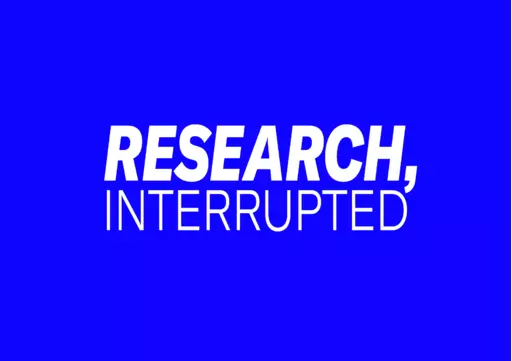
until 27 July 2024
Research Interrupted: workshops and events
Please find more information about the workshops and events as part of the week-long presentation Research Interrupted by the BAK fellows in Utrecht and Istanbul.
Click here for the timetable.
_____________________________________________________________________________
26 JULY
_____________________________________________________________________________
26 July: (Un)Schooling Resilience; Diagnostics, Resistance and Restorative Strategies
10:00–20:00 hrs
(Un)School Resilience: Diagnostics, Resistance, and Restorative Strategies is a one-day event that brings together different artistic and research trajectories that center on ‘the body’ as a living diagnostic of extractive capitalism. These bodies range from sick, anxious, and exhausted human forms to earth beings and more-than-human entities. The event explores practices of rebellion and resilience, restorative actions, withdrawals, politics of rest and grief, and glacial resistance.
Join us on 26 July from 10:00 until 20:00 for a compelling program of conversations, workshops, and sharing by the BAK 2023–2024 Fellows. Together, we will practice, envision, and dream of a future beyond the spell of extractive capitalism.
_____________________________________________________________________________
26 JULY
_____________________________________________________________________________
26 July: (Un)Schooling Resilience; Diagnostics, Resistance and Restorative Strategies
10:00–20:00 hrs
(Un)School Resilience: Diagnostics, Resistance, and Restorative Strategies is a one-day event that brings together different artistic and research trajectories that center on ‘the body’ as a living diagnostic of extractive capitalism. These bodies range from sick, anxious, and exhausted human forms to earth beings and more-than-human entities. The event explores practices of rebellion and resilience, restorative actions, withdrawals, politics of rest and grief, and glacial resistance.
Join us on 26 July from 10:00 until 20:00 for a compelling program of conversations, workshops, and sharing by the BAK 2023–2024 Fellows. Together, we will practice, envision, and dream of a future beyond the spell of extractive capitalism.
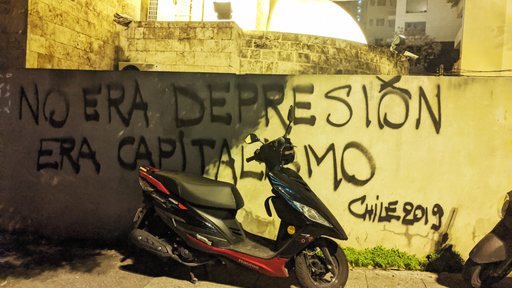
_____________________________________________________________________________
10–13 hrs
Garage School of Medicine: Community Apothecary (workshop)
Garage School of Medicine invites you to a community apothecary workshop and lunch hosted in and around BAK. Over the Fellowship for Situated Practice, the Garage School of Medicine (Kari Robertson and Santiago Pinyol) has explored alternative ways to understand health, wellness, and resilience through practices of radical herbalism, deep medicine, and community care. Join us for a session of conversation, hands-on study, and eating together.
Please bring to the session a home remedy from your own context or any ingredient that supports you or your community. This can be, for example, a herb, fruit, spice, or a pill. If you do not have a home remedy in mind it could also be a plant that is otherwise significant for you.
10–13 hrs
Garage School of Medicine: Community Apothecary (workshop)
Garage School of Medicine invites you to a community apothecary workshop and lunch hosted in and around BAK. Over the Fellowship for Situated Practice, the Garage School of Medicine (Kari Robertson and Santiago Pinyol) has explored alternative ways to understand health, wellness, and resilience through practices of radical herbalism, deep medicine, and community care. Join us for a session of conversation, hands-on study, and eating together.
Please bring to the session a home remedy from your own context or any ingredient that supports you or your community. This can be, for example, a herb, fruit, spice, or a pill. If you do not have a home remedy in mind it could also be a plant that is otherwise significant for you.
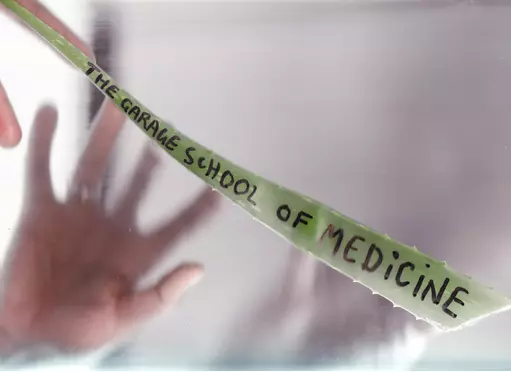
_____________________________________________________________________________
14–15 hrs
Marta Keil: Gestures of Withdrawal: Traces, Practices, and Spells of Refusal in Performing Arts (conversation)
In the form of “studio sharing” and conversation, we will have a look at withdrawal as an active, political gesture that produces cracks, shifts the perception of reality, and opens new (im)possible paths to be paved. What can one learn from the tired bodies of artworkers and art institutions? What opens up when one takes a leave? What are the new ways they have started to pave instead? Who can afford to withdraw? How can a curator become a doula, accompanying the process of withdrawing and mourning what we need to say goodbye to?
Following various traces left by the individuals and institutions in the performing arts field who refused to work like this, we will observe how withdrawal is being constituted and manifested with performative tools (such as a spell, an announcement, a gathering, a curatorial framework, a ritual) and what political potential it might invite to emerge.
14–15 hrs
Marta Keil: Gestures of Withdrawal: Traces, Practices, and Spells of Refusal in Performing Arts (conversation)
In the form of “studio sharing” and conversation, we will have a look at withdrawal as an active, political gesture that produces cracks, shifts the perception of reality, and opens new (im)possible paths to be paved. What can one learn from the tired bodies of artworkers and art institutions? What opens up when one takes a leave? What are the new ways they have started to pave instead? Who can afford to withdraw? How can a curator become a doula, accompanying the process of withdrawing and mourning what we need to say goodbye to?
Following various traces left by the individuals and institutions in the performing arts field who refused to work like this, we will observe how withdrawal is being constituted and manifested with performative tools (such as a spell, an announcement, a gathering, a curatorial framework, a ritual) and what political potential it might invite to emerge.
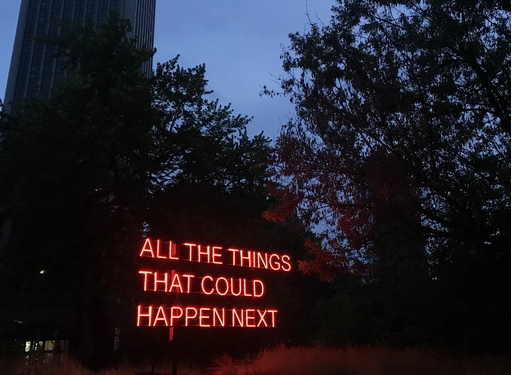
_____________________________________________________________________________
15:30–16:30 hrs
Yuliia Elyas: Workbook Workshop
Join Yuliia Elyas for a hands-on workshop exploring themes of knowledge production and resistance. Participants will engage in guided reflections and activities designed to delve into issues of knowledge production and mnemonic wars. Through these exercises, Elyas aims to foster a deeper understanding and exploration of personal and collective strategies for navigating complex sociopolitical landscapes.
During her fellowship at BAK, Elyas launched the Ukrainian Decolonial Glossary project, which seeks to develop a shared language for examining de-, anti-, and postcolonial theories in the context of Ukraine. Specifically for this presentation, she has crafted a workbook aligned with the proposed (un)schooling framework that is used as a basis for the workshop. Her inspiration stems from Myroslav Motenko, one of the 20 authors of the glossary, who discussed alternative historical narratives used in school textbooks within occupied territories of Ukraine. This context positions workbooks and pedagogy as critical tools within the discourse on propaganda and historical memory.
15:30–16:30 hrs
Yuliia Elyas: Workbook Workshop
Join Yuliia Elyas for a hands-on workshop exploring themes of knowledge production and resistance. Participants will engage in guided reflections and activities designed to delve into issues of knowledge production and mnemonic wars. Through these exercises, Elyas aims to foster a deeper understanding and exploration of personal and collective strategies for navigating complex sociopolitical landscapes.
During her fellowship at BAK, Elyas launched the Ukrainian Decolonial Glossary project, which seeks to develop a shared language for examining de-, anti-, and postcolonial theories in the context of Ukraine. Specifically for this presentation, she has crafted a workbook aligned with the proposed (un)schooling framework that is used as a basis for the workshop. Her inspiration stems from Myroslav Motenko, one of the 20 authors of the glossary, who discussed alternative historical narratives used in school textbooks within occupied territories of Ukraine. This context positions workbooks and pedagogy as critical tools within the discourse on propaganda and historical memory.
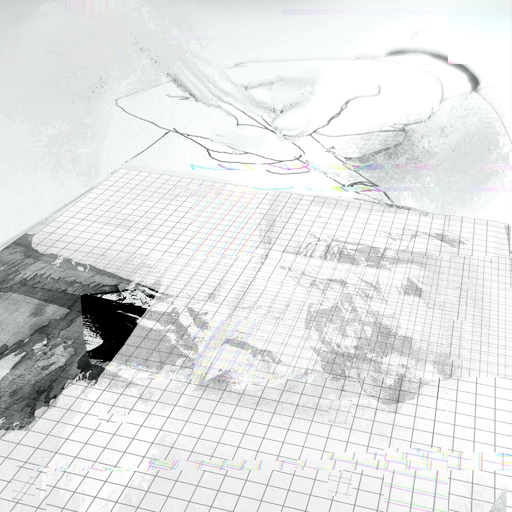
_____________________________________________________________________________
16:45–18 hrs
Teresa Borasino: Glacial Conversations
A dying ice-body breathes through ancestral territories in the southern Andes of Peru. Quelccaya, the world’s largest tropical glacier, faces not only the irreversible impacts of climate collapse but also new threats from lithium and uranium mining projects. In this lecture performance, Teresa Borasino facilitates a conversation between four distinct perspectives: Yolanda Quispe, a member of the Phinaya community; Victor Bustínza, a specialist in glacial ecosystems; Vito Calderón, an Indigenous and environmental rights activist; and the glacier-being. Using insights and materials gathered from field research conducted during the fellowship, this lecture performance brings to life a larger artistic research project examining the intertwined relationship between the erasure of ancestral knowledge systems and the current ecological crisis facing this significant glacier being.
16:45–18 hrs
Teresa Borasino: Glacial Conversations
A dying ice-body breathes through ancestral territories in the southern Andes of Peru. Quelccaya, the world’s largest tropical glacier, faces not only the irreversible impacts of climate collapse but also new threats from lithium and uranium mining projects. In this lecture performance, Teresa Borasino facilitates a conversation between four distinct perspectives: Yolanda Quispe, a member of the Phinaya community; Victor Bustínza, a specialist in glacial ecosystems; Vito Calderón, an Indigenous and environmental rights activist; and the glacier-being. Using insights and materials gathered from field research conducted during the fellowship, this lecture performance brings to life a larger artistic research project examining the intertwined relationship between the erasure of ancestral knowledge systems and the current ecological crisis facing this significant glacier being.
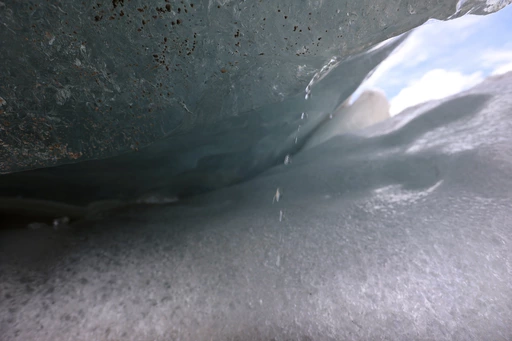
_____________________________________________________________________________
18:30–20 hrs
Rest In Power: Rest, Grief, and Resilience in the Times of Late Capitalism
Panel with Andrea Knezović, Alev Ersan, Enis Köstepen, Irmak Karasu, Marta Keil, and Varduhi Balyan
The dual phrases of “Rest in Peace” and “Rest in Power” are imagined to highlight how it has been a daunting task for the living to “rest in peace” as they always “rest subjected to power.” How may the living get any rest while witnessing ongoing massacres, genocide, extinction, loss and as they constantly wake up into yet more cycles of burnout? And for the dead, is it possible to rest in peace or power while causes and struggles are losing so much ground? What stories are being told by exhausted institutional bodies—ghosts of what they might have been and will never become? What imaginaries, ambitions, and working methods need to be removed in order to break the ever-deepening spell of depletion? In working alongside one another in the past five months, what was realized as a subtle common thread between these participants, was how landscape, place, site, and the institutional body could act as a means to access loss and how thinking through these may be an invitation to move toward what is no longer accessible yet what requires grieving and remembrance.
18:30–20 hrs
Rest In Power: Rest, Grief, and Resilience in the Times of Late Capitalism
Panel with Andrea Knezović, Alev Ersan, Enis Köstepen, Irmak Karasu, Marta Keil, and Varduhi Balyan
The dual phrases of “Rest in Peace” and “Rest in Power” are imagined to highlight how it has been a daunting task for the living to “rest in peace” as they always “rest subjected to power.” How may the living get any rest while witnessing ongoing massacres, genocide, extinction, loss and as they constantly wake up into yet more cycles of burnout? And for the dead, is it possible to rest in peace or power while causes and struggles are losing so much ground? What stories are being told by exhausted institutional bodies—ghosts of what they might have been and will never become? What imaginaries, ambitions, and working methods need to be removed in order to break the ever-deepening spell of depletion? In working alongside one another in the past five months, what was realized as a subtle common thread between these participants, was how landscape, place, site, and the institutional body could act as a means to access loss and how thinking through these may be an invitation to move toward what is no longer accessible yet what requires grieving and remembrance.
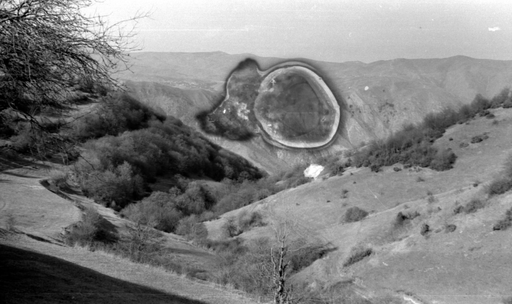
_____________________________________________________________________________
27 JULY
_____________________________________________________________________________
14–15:30 hrs
Radical Data: Digital Solidarity (workshop)
Join us for the workshop Digital Solidarity, where we explore the subversive potential of technology to combat oppressive digital labor. In collaboration with union organizer Marta Roz, this workshop delves into innovative strategies for digital solidarity and organization. Roz will highlight how employers exploit technological advancements to increase labor demands, often at the expense of workers’ health and safety. Together, we will discuss how digital tools and collective action can be harnessed to protect workers’ rights, promote well-being, and foster a supportive community in the digital labor landscape.
27 JULY
_____________________________________________________________________________
14–15:30 hrs
Radical Data: Digital Solidarity (workshop)
Join us for the workshop Digital Solidarity, where we explore the subversive potential of technology to combat oppressive digital labor. In collaboration with union organizer Marta Roz, this workshop delves into innovative strategies for digital solidarity and organization. Roz will highlight how employers exploit technological advancements to increase labor demands, often at the expense of workers’ health and safety. Together, we will discuss how digital tools and collective action can be harnessed to protect workers’ rights, promote well-being, and foster a supportive community in the digital labor landscape.
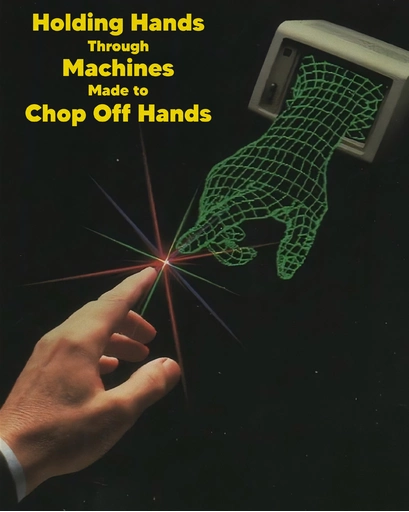
_____________________________________________________________________________
16–17 hrs
Maoyi Qiu: Movement/Somatic (workshop)
A public workshop will be held based upon the proposition from Erin Manning’s The Minor Gesture (2016), where the author positions the body as an “ecology of practices” that is always being facilitated by the environment. This workshop aims to provide a moment to focus on the zoomed-out exhaustion of sequences and movements. Materials, workbooks, and movement guidance will facilitate participants in examining social and psychic transformation in a lagged temporality.
16–17 hrs
Maoyi Qiu: Movement/Somatic (workshop)
A public workshop will be held based upon the proposition from Erin Manning’s The Minor Gesture (2016), where the author positions the body as an “ecology of practices” that is always being facilitated by the environment. This workshop aims to provide a moment to focus on the zoomed-out exhaustion of sequences and movements. Materials, workbooks, and movement guidance will facilitate participants in examining social and psychic transformation in a lagged temporality.
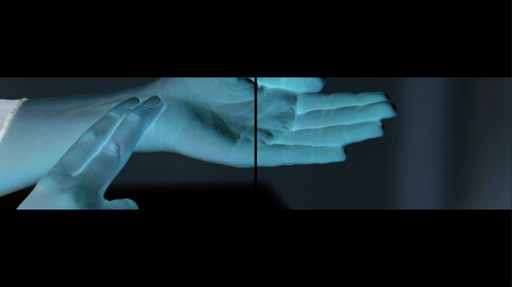
_____________________________________________________________________________
17–18 hrs
Betül Aksu: Global Talent (performance)
During the BAK Fellowship for Situated Practice, Betül Aksu researched visa requirements for cultural workers and went through the application process of the Global Talent visa herself, to live and work as an artist in the UK. The performance highlights the everyday absurdities of looking at one’s own art practice through the lens of visa requirements.
17–18 hrs
Betül Aksu: Global Talent (performance)
During the BAK Fellowship for Situated Practice, Betül Aksu researched visa requirements for cultural workers and went through the application process of the Global Talent visa herself, to live and work as an artist in the UK. The performance highlights the everyday absurdities of looking at one’s own art practice through the lens of visa requirements.
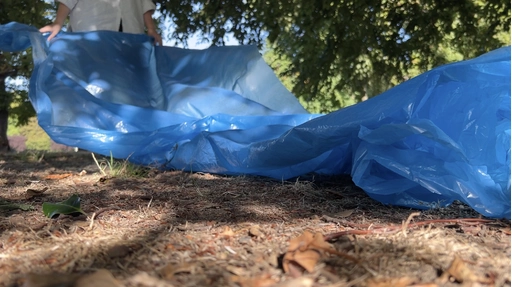
_____________________________________________________________________________
18:30–19 hrs
Esra Oskay: Sounds from “the archive of anonymous censorship notes”
Since November 2023, Esra Oskay has been keeping a log book where they note down people talking about “sensitive” issues in public, amongst their friends yet at a hearing distance to them. This particular form of listening captures what is spoken in the shrinking public spaces. Oskay employs eavesdropping on others and hence approaches gossip as an alternative mode of production and circulation of knowledge that gives a glimpse into what is censored. “I listen to the everyday conversations, standing nearby to the moments of passing sensitive information,” says Oskay,” the infra-tiny moments when people speak up within the restricted domains of the public sphere.” This could be considered as a particular method of listening, overhearing the others, eavesdropping to the edges of the dominant discourse where a moment of truth and political resistance briefly emerges: listening to what is suppressed. For this event, through the tools of speaking at a distance, notes from the Anonymous Censorship Archives will be voiced by anonymous speakers.
"Undocumenting - Anarchiving": Present in Absence
This is the first attempt f the working group Anarchiving - Undocumenting* to share the outcomes of their discussions which took place during the BAK Fellowship program. Through different film, sound, and textual materials, they share their outcomes on how to (an)archive and (un)document under oppression. By using speculative methodologies and intangible formats they explore what sound and image can bring as one wishes to stay anonymous.
*The working group “Undocumenting - Anarchiving ” is made up of Esra Oskay, Fırat Yücel, Paula Montecinos Oliva, and Seher Uysal.
18:30–19 hrs
Esra Oskay: Sounds from “the archive of anonymous censorship notes”
Since November 2023, Esra Oskay has been keeping a log book where they note down people talking about “sensitive” issues in public, amongst their friends yet at a hearing distance to them. This particular form of listening captures what is spoken in the shrinking public spaces. Oskay employs eavesdropping on others and hence approaches gossip as an alternative mode of production and circulation of knowledge that gives a glimpse into what is censored. “I listen to the everyday conversations, standing nearby to the moments of passing sensitive information,” says Oskay,” the infra-tiny moments when people speak up within the restricted domains of the public sphere.” This could be considered as a particular method of listening, overhearing the others, eavesdropping to the edges of the dominant discourse where a moment of truth and political resistance briefly emerges: listening to what is suppressed. For this event, through the tools of speaking at a distance, notes from the Anonymous Censorship Archives will be voiced by anonymous speakers.
"Undocumenting - Anarchiving": Present in Absence
This is the first attempt f the working group Anarchiving - Undocumenting* to share the outcomes of their discussions which took place during the BAK Fellowship program. Through different film, sound, and textual materials, they share their outcomes on how to (an)archive and (un)document under oppression. By using speculative methodologies and intangible formats they explore what sound and image can bring as one wishes to stay anonymous.
*The working group “Undocumenting - Anarchiving ” is made up of Esra Oskay, Fırat Yücel, Paula Montecinos Oliva, and Seher Uysal.
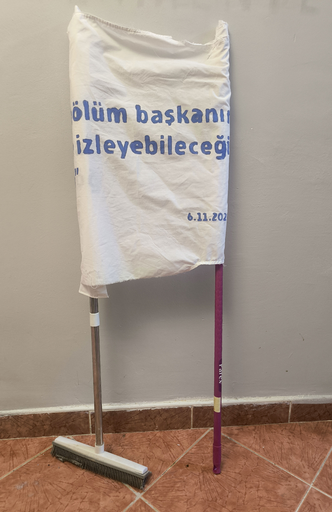
_____________________________________________________________________________
19:15–20 hrs
Yâni/Yaani: Ongoing research presentation and discussion
Yâni is Hanieh Fatouraee, Siwar Krai(y)tem, Alev Ersan, Betül Aksu
The presentation includes documentation of the collective’s work and their publication outcome. Formed shortly after the start of the BAK Situated Practice Fellowship, Yâni/Yaani is a group who work using multilingual and translational writing, video, and drawing. Living in four different cities, the artists bring this separation and the specifics of their habitats as well as their personal and familial histories of migration and movement into their collective work. The research content spans locations such as Amsterdam, Beirut, Ankara, Kyrenia, Tehran, Istanbul, Utrecht, and İzmir.
Their first public work, entitled Still in My Quotidian, an attempt at imagining the possibilities of text acting as host, was performed at de Appel, Amsterdam in March 2024. In this lecture performance, the artists presented a collective composition of text, drawings, and videos that spoke to experiences of and references to belonging, alienation, and familiarity with one’s mother tongue as well as questions of absence and presence. The second iteration was a gathering where all participants were able to spend time together in person for the first time, at Sezon, an art space in İzmir. The publication seeks to present the ongoing and unfinished nature of their work and is divided into chapters through the cities that have particular resonations within the research.
19:15–20 hrs
Yâni/Yaani: Ongoing research presentation and discussion
Yâni is Hanieh Fatouraee, Siwar Krai(y)tem, Alev Ersan, Betül Aksu
The presentation includes documentation of the collective’s work and their publication outcome. Formed shortly after the start of the BAK Situated Practice Fellowship, Yâni/Yaani is a group who work using multilingual and translational writing, video, and drawing. Living in four different cities, the artists bring this separation and the specifics of their habitats as well as their personal and familial histories of migration and movement into their collective work. The research content spans locations such as Amsterdam, Beirut, Ankara, Kyrenia, Tehran, Istanbul, Utrecht, and İzmir.
Their first public work, entitled Still in My Quotidian, an attempt at imagining the possibilities of text acting as host, was performed at de Appel, Amsterdam in March 2024. In this lecture performance, the artists presented a collective composition of text, drawings, and videos that spoke to experiences of and references to belonging, alienation, and familiarity with one’s mother tongue as well as questions of absence and presence. The second iteration was a gathering where all participants were able to spend time together in person for the first time, at Sezon, an art space in İzmir. The publication seeks to present the ongoing and unfinished nature of their work and is divided into chapters through the cities that have particular resonations within the research.
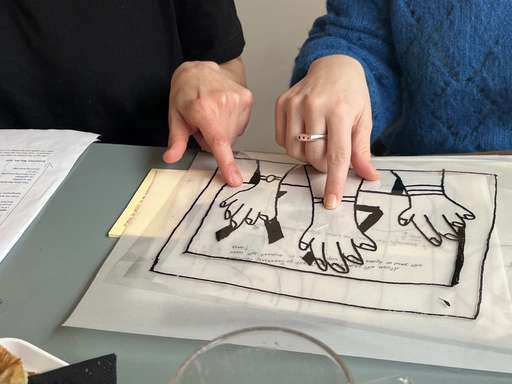
_____________________________________________________________________________
20–21 hrs
Astrid Feringa and Claude Nassar: If the International Atomic Clock was Circuit-Bent, it Would Play Aquarius (Flamman & Abraxas Radio Mix) by Party Animals and Desynchronize the Rhythms of Modernity (jamming session during drinks)
The managing systems of western modernity (network- and communication technologies, satellite navigation, financial markets, trade, the internet, etc.) function by synchronizing their components to a master clock. The same logic applies to small-scale electronic systems. For example, in the case of a synthesizer, the components that constitute it need to be synchronized to a master clock in order for it to generate steady oscillations and produce a stable sound.
However, as one’s body is subject to and is an enactor of dissonant (social) frequencies, rhythms and vocabularies, we wonder: what kind of technologies and what kind of according social
structures can we imagine, if we forgo a mode of organization dependent on synchronization, according to a pre-supposed steady and unified rhythm?
Through a jamming session with synthesized sound, samples, and steady rhythms inspired by Gabber music, we invite you to imagine how an alternative to modern modes of bureaucratic management would be if their core, their circuits, and their structure of organization were not synchronized to a steady clock of a presupposed order.
Additionally, we invite everybody who wants to be part of this experiment in undoing harmonization to bring their own instruments (and the necessary cables) that can be plugged into a mixer.
20–21 hrs
Astrid Feringa and Claude Nassar: If the International Atomic Clock was Circuit-Bent, it Would Play Aquarius (Flamman & Abraxas Radio Mix) by Party Animals and Desynchronize the Rhythms of Modernity (jamming session during drinks)
The managing systems of western modernity (network- and communication technologies, satellite navigation, financial markets, trade, the internet, etc.) function by synchronizing their components to a master clock. The same logic applies to small-scale electronic systems. For example, in the case of a synthesizer, the components that constitute it need to be synchronized to a master clock in order for it to generate steady oscillations and produce a stable sound.
However, as one’s body is subject to and is an enactor of dissonant (social) frequencies, rhythms and vocabularies, we wonder: what kind of technologies and what kind of according social
structures can we imagine, if we forgo a mode of organization dependent on synchronization, according to a pre-supposed steady and unified rhythm?
Through a jamming session with synthesized sound, samples, and steady rhythms inspired by Gabber music, we invite you to imagine how an alternative to modern modes of bureaucratic management would be if their core, their circuits, and their structure of organization were not synchronized to a steady clock of a presupposed order.
Additionally, we invite everybody who wants to be part of this experiment in undoing harmonization to bring their own instruments (and the necessary cables) that can be plugged into a mixer.
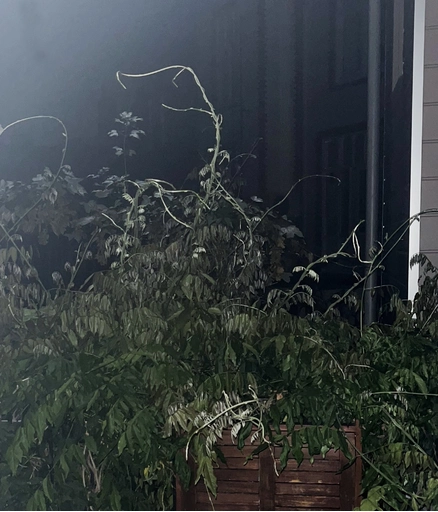
VISITING INFO
To register for the workshops, please email fellowshipforsituatedpractice
@gmail.com.